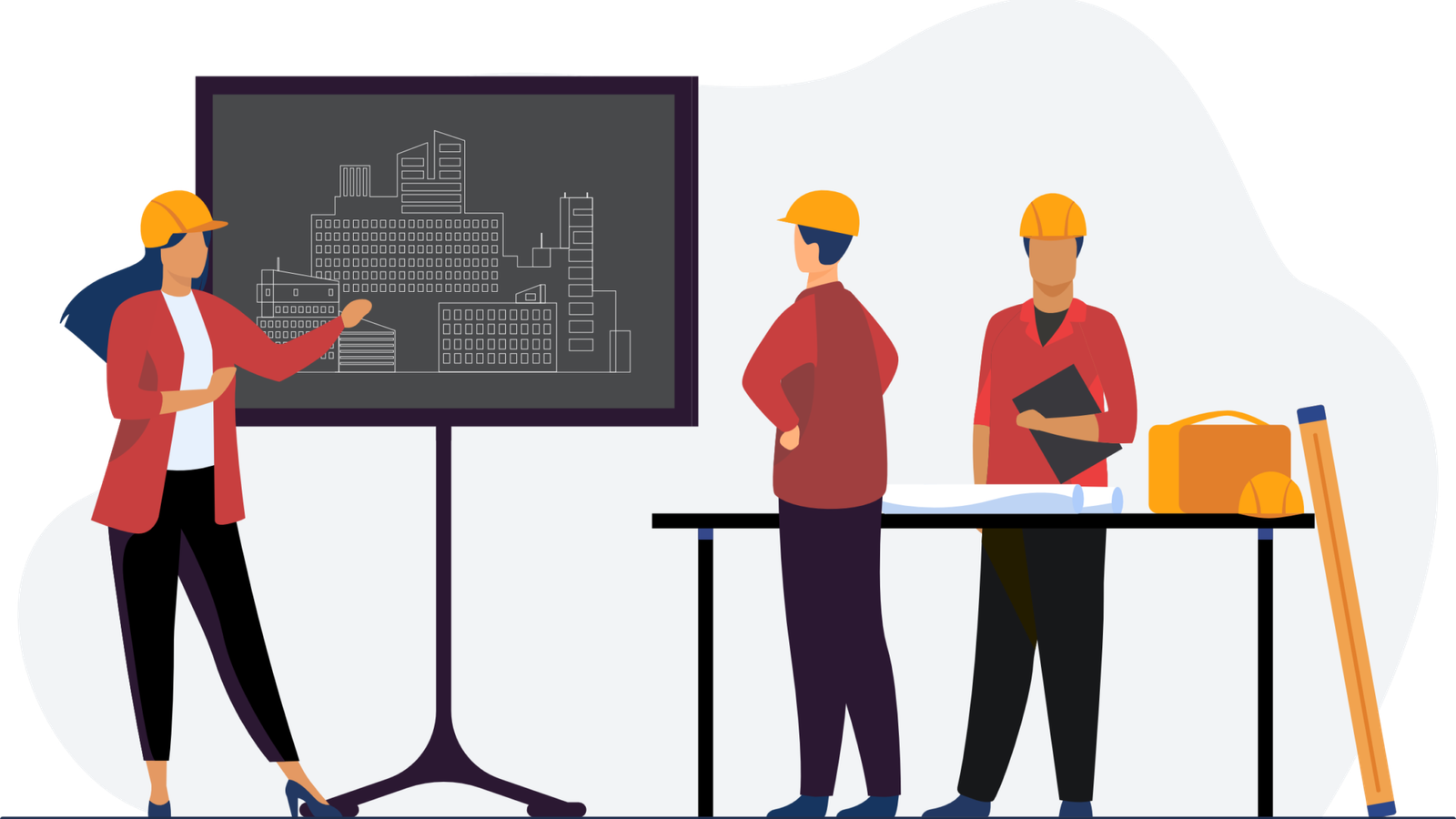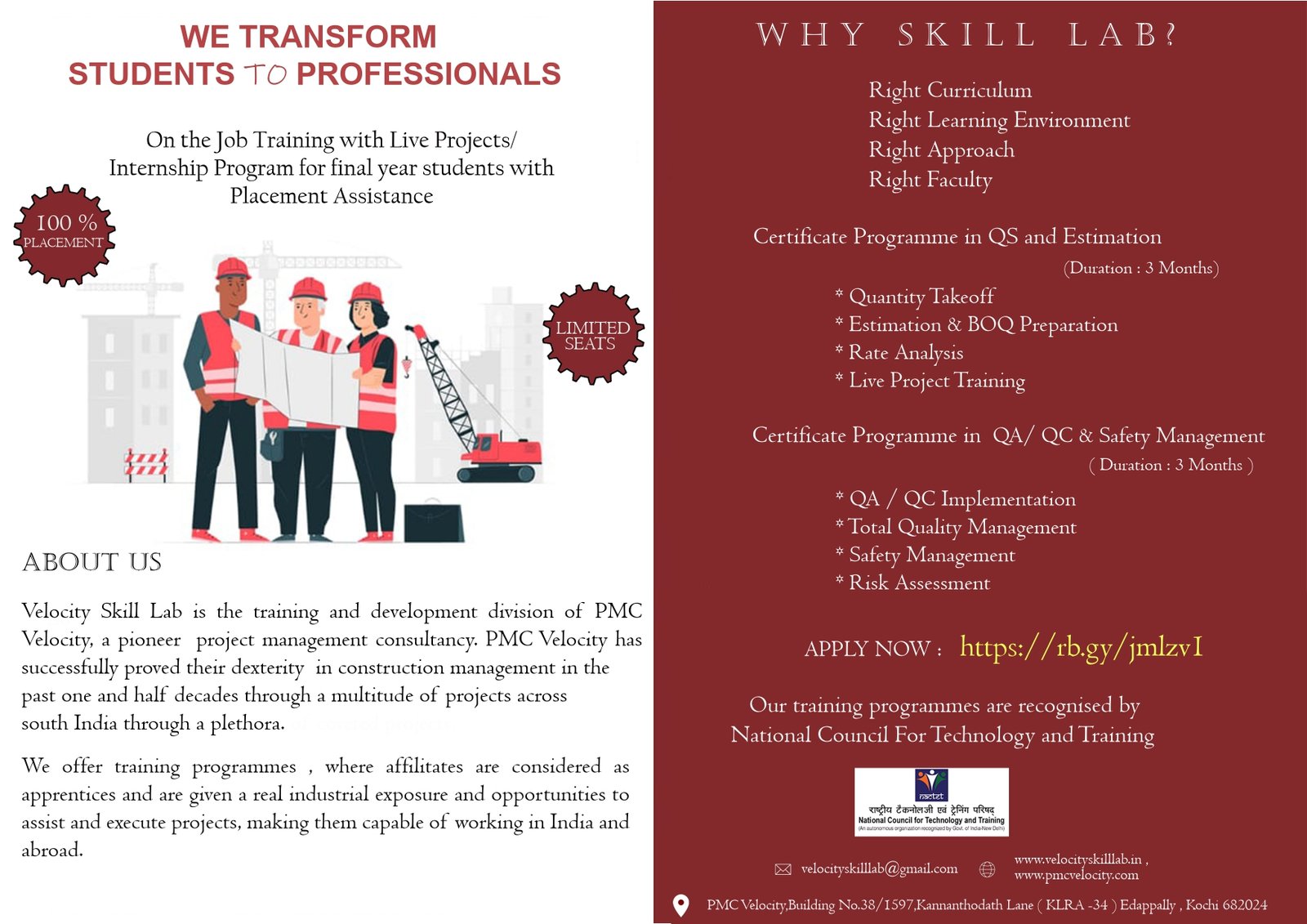QS and Estimation are essential aspects of construction that can significantly impact the cost, efficiency, and success of a project. Whether you’re a construction professional, property developer, or someone interested in understanding how large-scale projects are planned and executed, learning about Quantity Surveying (QS) and Estimation is a valuable investment in knowledge.
In this detailed blog post, we’ll cover what QS and Estimation are, their importance in the construction industry, the skills required for professionals in this field, tools used, and tips for accurate estimating. By the end, you’ll have a comprehensive understanding of how these practices shape successful construction projects.
What is QS and Estimation?
Understanding Quantity Surveying (QS)
Quantity Surveying is a specialized field of construction management that deals with the cost estimation, budgeting, and financial control of building projects. A Quantity Surveyor ensures that a project remains within its financial limits while achieving the desired quality and functionality.
What is Estimation in Construction?
Estimation refers to the process of forecasting the probable cost of a construction project before the actual work begins. This involves calculating material costs, labor, equipment, overheads, and other related expenses. The accuracy of an estimate can make or break a project’s profitability and feasibility.
The Importance of QS and Estimation in Construction
1. Financial Planning and Budget Control
Accurate QS and Estimation allow stakeholders to plan finances effectively, avoiding unexpected expenses and minimizing financial risks throughout the construction lifecycle.
2. Preventing Cost Overruns
One of the primary reasons for project failures is cost overruns. Quantity surveyors use precise estimation techniques to reduce the likelihood of financial surprises.
3. Informed Decision-Making
When developers, contractors, and clients understand the estimated cost and cash flow requirements, they can make more informed decisions regarding design changes, scope expansions, and contract choices.
4. Project Viability Assessment
Before greenlighting a construction project, feasibility studies including cost estimation help stakeholders assess whether the project is economically viable.
Key Roles of a Quantity Surveyor (QS)
A QS plays several critical roles in the construction process:
- Preparing bills of quantities (BOQ)
- Cost planning and control
- Value engineering
- Contract administration
- Risk management
- Procurement advice
- Project auditing and reporting
Types of Estimation in QS
Understanding the different types of estimation is crucial for accurate budgeting and resource allocation.
1. Preliminary Estimation
Used during the conceptual phase, it gives an approximate idea of the total project cost.
2. Detailed Estimation
Prepared once design and specifications are finalized. It involves a thorough breakdown of costs including materials, labor, plant, and overheads.
3. Quantity Estimation
Involves measuring quantities from drawings to create a Bill of Quantities (BOQ), which is used for tendering and financial planning.
4. Revised Estimation
Updated estimates prepared due to design changes, scope alterations, or economic factors such as inflation.
Tools and Software for QS and Estimation
Modern QS and Estimation have evolved with technology. Today, professionals use advanced software to ensure accuracy and efficiency.
Popular Tools Include:
- AutoCAD – For reading and measuring technical drawings.
- Microsoft Excel – Still widely used for customized templates and spreadsheets.
- CostX – A leading tool for digital takeoff and estimating.
- Bluebeam Revu – Allows for digital markup and measurements.
- Revit & BIM 360 – Integrates Building Information Modeling (BIM) for real-time cost updates.
- Candy – Commonly used for construction project cost control.
Skills Required for QS and Estimation Professionals
To succeed in this field, QS and Estimation professionals need a blend of technical and soft skills:
- Strong mathematical and analytical ability
- Attention to detail
- Excellent communication and negotiation
- Knowledge of construction methods and materials
- Familiarity with local building codes and regulations
- Proficiency in cost estimation software
Challenges in QS and Estimation
Despite its importance, QS and Estimation come with their own set of challenges:
1. Design Changes
Frequent changes in design can disrupt the estimating process, requiring continuous updates and revisions.
2. Inaccurate Data
Estimates are only as good as the data they’re based on. Outdated or incorrect information can lead to underestimating or overestimating costs.
3. Market Fluctuations
Material costs, labor rates, and equipment availability can change quickly, impacting the accuracy of cost estimates.
4. Time Constraints
Project timelines are often tight, leaving less time for thorough QS processes, increasing the risk of error.
Tips for Accurate QS and Estimation
Want to improve accuracy in your QS and Estimation efforts? Here are some proven tips:
1. Use Historical Data
Leverage past project data to inform new estimates. This provides a benchmark and minimizes guesswork.
2. Incorporate Contingencies
Always include a contingency allowance to account for unexpected costs or changes during construction.
3. Keep Software Up to Date
Use the latest versions of cost estimating software to ensure compatibility, accuracy, and access to updated price databases.
4. Engage with Site Teams
Consulting with engineers, architects, and site managers can provide practical insights that improve estimation accuracy.
5. Review and Audit Regularly
Regular checks and audits of the estimating process help catch errors early and enhance transparency.
QS and Estimation in Sustainable Construction
With the rise of green building, QS and Estimation have taken on a new role in ensuring that sustainable practices are also cost-effective.
- Life Cycle Costing (LCC) is used to evaluate long-term cost implications of materials and methods.
- Estimators now assess energy efficiency, water usage, and environmental impact during the planning phase.
- QS professionals work closely with sustainability consultants to ensure eco-friendly projects remain financially viable.
The Future of QS and Estimation
Technology and innovation are shaping the future of Quantity Surveying and Estimation. Trends include:
- AI and Machine Learning: Automating estimation based on historical data and predictive analytics.
- BIM Integration: Real-time cost updates as project designs evolve in 3D.
- Cloud-Based Tools: Allow remote access, collaboration, and version control.
- Drones and Laser Scanning: Used for site measurements and progress tracking.
These developments promise greater speed, accuracy, and transparency in future construction projects.
Conclusion: Why QS and Estimation Matter
QS and Estimation are not just technical tasks—they are strategic tools that shape the financial health and success of construction projects. From budget control and procurement to risk management and cost optimization, they form the core of effective construction management.
Whether you’re a property owner planning a small home or a project manager overseeing a multi-million dollar development, understanding and investing in QS and Estimation will save you money, time, and stress.
Frequently Asked Questions (FAQs)
What does a Quantity Surveyor do?
A Quantity Surveyor manages all financial aspects of a construction project, from estimating and budgeting to contract administration and cost control.
How is estimation different from QS?
Estimation focuses specifically on forecasting project costs, while Quantity Surveying encompasses cost control, legal, and contractual responsibilities throughout the project lifecycle.
What are the best tools for QS and Estimation?
Popular tools include CostX, Bluebeam Revu, Candy, AutoCAD, and BIM-integrated platforms like Revit.
Why is QS and Estimation important in green building?
They ensure sustainable materials and methods are not only environmentally responsible but also cost-effective over a building’s lifecycle.
Final Thoughts
Whether you’re breaking ground on a new project or refining your approach to construction cost control, mastering QS and Estimation is essential. With the right knowledge, tools, and strategies, you can deliver projects that are on time, within budget, and built to last.
For more insights on construction, project management, and cost estimation tools, stay tuned to our blog and don’t forget to share this article with your network.
for more about this course contact velocity skill lab




